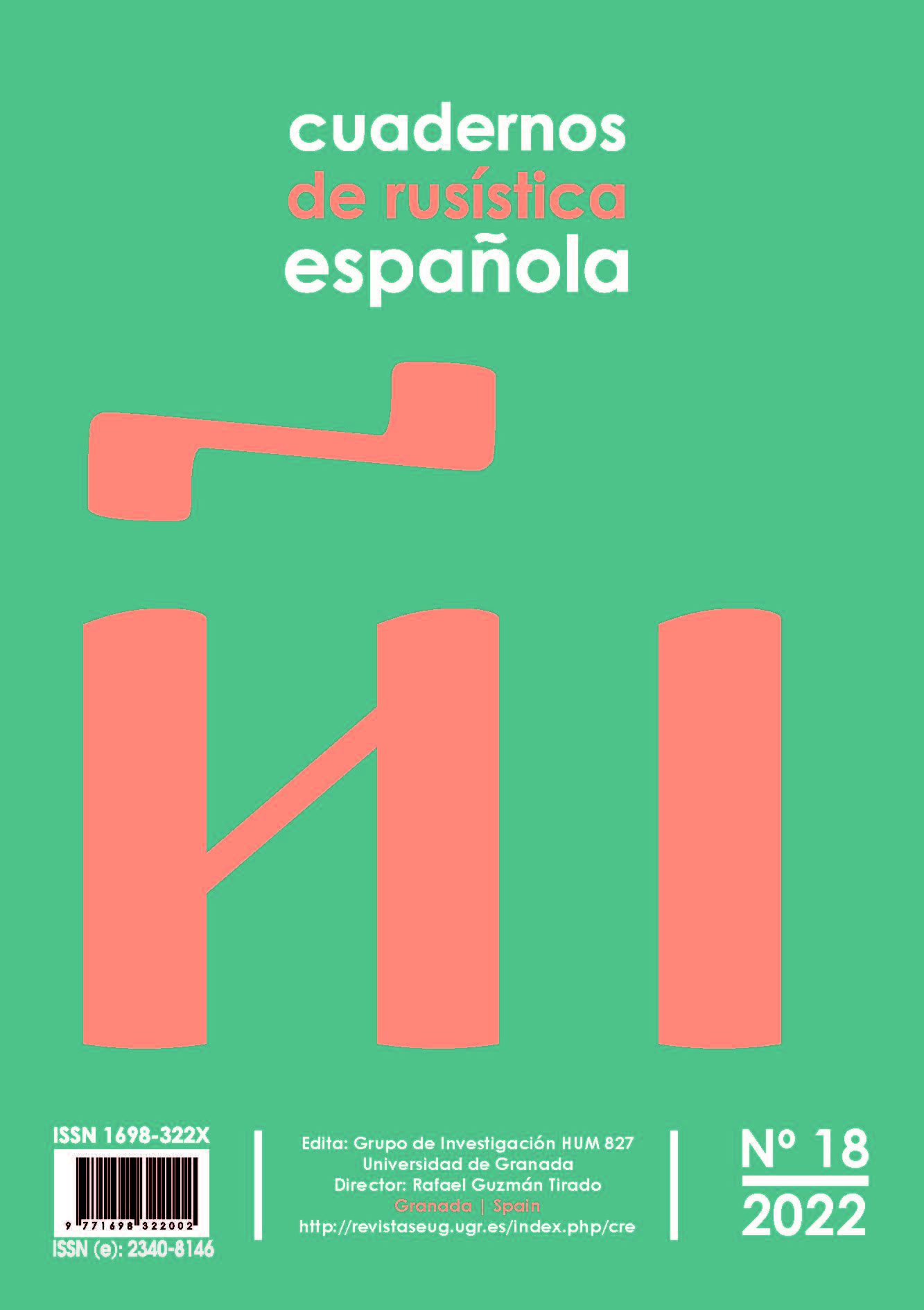Anthropomorphous Metaphor in Economic Discourse: Receptive Learning by Russian-Speaking Students
DOI:
https://doi.org/10.30827/cre.v18.24570Palabras clave:
conceptual metaphor, anthropomorphous metaphor, metaphoric expression, communicative skills of perception, recognition and understanding of metaphorical expressions, series of exercisesResumen
The article considers an anthropomorphic conceptual metaphor as an object of receptive study by Russian-speaking students of the humanities in the process of reading English texts on economics.
An interpretation of the concept of “anthropomorphic metaphor” is refined resulted from the sample analysis; a typology of anthropomorphic metaphors is compiled based on the contexts of anthropomorphic metaphors in economic discourse analyzed; a method of receptive mastery of the conceptual metaphor by Russian-speaking students in the process of reading special texts is proposed. It is designed taking into account the didactic possibilities of implementing the educational process in the absence of a natural foreign language environment. The paper presents for the first time a series of exercises for the formation and development of students’ communicative skills including perception, recognition and understanding metaphorical expressions in economic discourse.
Descargas
Citas
ARUTYUNOVA, N.D. (1988): Tipy yazykovyx znachenij: Otsenka. Sobytije. Fakt. Nauka. Moskwa.
BOERS, F. (2000): “Enhancing metaphoric awareness in specialized reading”, English for Specific Purposes, 19, pp. 137–147.
HENDERSON, W. (2000): “Metaphor, economics and ESP: some comments”, English for Specific Purposes, 19, pp. 167–173.
JENDRYCH, E. (2017): “Metaphoric Expressions in Business Communication”, Lingwistyka Stosowana. Applied linguistics. Angewandte linguistic. Instytut Komunikacji Specjalistycznej i Interkulturowej, № 21, pp. 39–53.
KATAN, D. (2004): Translating Cultures. An Introduction for Translators, Interpreters and Mediators. St. Jerome Publishing. UK& Northampton MA, Manchester.
KNOWLES, F. (1996): “Lexicographical Aspects of Health Metaphors in Financial Text”, Proceedings of Euralex 96, Gothenberg University, pp.789–796.
KUBRYAKOVA E.S. (2004): “Ob ustanovkax kognitivnoj nauki i aktualnyx problemax kognitivnoj lingvistiki”, Voprosy yazykoznaniya, № 1. st. 6–17.
LAKOFF, G., M. JOHNSON. (2003): Metaphors We Live By. The University of Chicago Press. Chicago; London
LEONTYEVA, Т.P. (2017): Metodika prepodavaniya inostrannogo yazyka, Vysheishaya shkola, Minsk.
LITTLEMORE, J. (2016): “Metaphor use in educational contexts: functions and variations” in E. Semino & Z. Demjén (eds), The Routledge Handbook of Metaphor. Routledge Handbooks in Linguistics, Routledge.
NEUFELDT, V. (ed.). (1988): Webster’s New World Dictionary of American English, 3rd college ed. New York: Simon & Schuster, Inc.
NIZKOSHAPKINA, О.V., BOL’SHAKOVA, N.G. (2019): “Contextual’naya dogadka kak odna iz strategiy obucheniya inostrannykh uchaschikhsya chteniyu na russkom yazyke”, Cuadernos de Rusística Espaňola, №15, pp. 193–205.
PENCHEVA, А. (2007): “О fomirovaniyi kommunikativnoy professional’noy kompetentsiyi studentov-economistov”, Cuadernos de Rusística Espaňola, №3, pp. 81–85.
THORNBURY, S. (1991): “Metaphors we work by: EFL and its metaphors”, ELT Journal, 45/3 July, pp. 193–200.
TYELIYA, V.N. (1987): O spetsyfike otobrazeniya mira psixiki i znaniya v yazyke. V kn.: Suchnost, razvitiye i funkyii jazyka, Nauka, Moskwa. st. 65–74.
WIERZBICKA, A. (1997): Understanding cultures through their key words. Oxford University Press. New York; Oxford.












